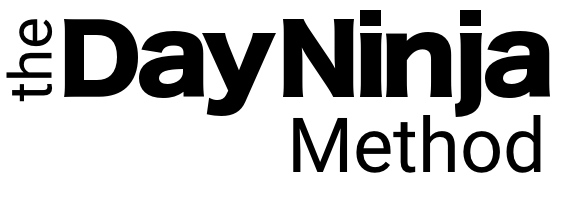When is the best time for flow? focused work
Our work days typically start at 9am and end at 5pm, but is that the best time for you to flow? The answer is not a simple yes or no, it depends on a lot of factors:
- Your internal circadian rhythms — sleep wake cycle
- Your chronotype — tendency toward morningness or eveningness
- Time of the year — sunrise and sunset
- Distractions (and your ability to block them)
- Commitments – time constraints
- Your Age.
First, I’ll back up a bit and explain a few terms there you may not be familiar with.
What is a circadian rhythm?
A human beings, our natural internal clock is dictated by the sleep wake cycle. Just like a flower that opens in the daylight and closes at night time. Our bodies perform at peak periods of the day then shut down at others.
There are myriad chemical changes that happen in our bodies over the course of the day. These affect our physical and mental performance that naturally coordinate with the sleep wake cycle. Just one of these is Melatonin. This sleep inducing hormone is released in larger doses during the evening. Melatonin is associated with all affects of drowsiness and ultimately falling asleep. In the morning Melatonin persists in our bodies for some hours. How long is also dependent on our individual Chronotype.
What is a chronotype?
Chronotypes are both a biological and environmental manifestation of a propensity for sleep in a 24 hour period. Closely linked to our natural circadian rhythm, our chronotype is most evident in whether we tend toward eveniningness or morningness. Those who rise early at the crack of dawn will have a different cycle throughout the day toward sleep; than those who wake later (only sleep near or after midnight).
What I personally find fascinating about Chronotypes is that they are not directly hereditary. Conversely, research indicates Chronotypes are an important part of our evolution. A mix of Chronotypes within a family and tribe was essential to survival. A successful tribe always had an alternating member standing guard 24 hours a day; another hunting from the crack of dawn. There was the ‘first kill’ or gathering of food awaiting the rest of the tribe as they woke.
A mix of Chronotypes is important to a successful tribe, similarly a company and families. It is stereotypical of the company CEO: working late into the night or another in the office hours before the doors open. This may not be due to work ethic, it may simply be their chronotype.
Only 15% of the population are natural early risers (lions); ~20% struggle to wake early (Wolves) yet are most productive at night (Forbes). The majority (bears) make up over half the population and tend toward to normal work day. With over half the population being ‘Bears’ this; is why the world has tended toward the 9 to 5 work day.
What do circadian rhythms & chronotypes have to do with flow?
We have established that each of our 24hr cycles are uniquely different. Yet, our typically rigid work day with a consistent start and end time, our modern night time activities; these are all at odds with what our bodies naturally want to do. To find optimal flow – a daily routine helps, but ultimately we need to be in tune with our bodies and our environment. We need to adapt to create the chemical mix required for flow.
Inducing the flow state
In order to enter flow our mind must be:
- alert and interested in the subject matter;
- not distracted;
- mildly challenged but nor overwhelmed by complexity;
- with energy and momentum
Not all hours of the day are equal. Our minds operate at different frequencies throughout the day. Choosing the wrong activity at the wrong time can lead to distraction, frustration, procrastination and ruin your day.
Flow vs Focus
I wrote an entire blog post about the difference between flow and focus. For ease of reading I’ll give you a short summary:
Focus is defined as a cognitive state of attention whereby we direct all of our mental and physical faculties toward one objective. Focus allows us to avoid distraction or confusion. When we discuss focus there is often associated cognitive effort required and in time our minds tire and need to rest.
For example when solving complex problems like math or debugging software. There are some tasks that are done through sheer determination and effort — this requires focus.
Whereas flow, is an almost superhuman feeling and continuous stream of consciousness whereby your mind propels your work with maximum creativity with little effort. As you can probably tell I am a big fan of flow, I seek to be in flow daily and have subsequently designed apps and the DayNinja Method to achieve flow on demand. You can read my story and tips to get into the flow state here.
Why try to induce flow and not focus?
In short, the benefits of flow will yield up to 4x productivity in the same amount of time without burning as much mental energy.
A daily routine to induce flow
Wake time — first, know your Chronotype or at least know your ‘right time’ to wake. If you have freedom of time and did not set an alarm clock, what time would you wake? If possible you should try to wake that time every day (allowing for seasonal adjustment). For me, depending on the time of the year this can be as early as 5am in Summer or late as 7am in Winter (yes I am Lion).
To maintain consistency of waking time you need to be fair on yourself and get to bed consistently. Give yourself 8hrs in bed, even if you sleep less. Practice good sleep hygiene: that is no screens for at least an hour before bed time. Don’t watch TV in bed.
Exercise — being tired is important to good sleep and all body functions so regardless of how busy you are be sure to have done at least 30mins of exercise a day. I like to do this early, soon as I wake. I like to jog, it gives me freedom of mind and prepare me for the day. An added bonus is that running and jogging release some of the chemicals needed to induce flow.
Block out time — being purposeful by making time for flow is crucial to accessing its’ powers. If you ‘clear your plate’ by trying to achieve ‘inbox zero’ before making time for flow then you’ll arrive to that hour brain dead — all your mental energy spent and unable to induce the flow state. For this reason, I like to get my flow into the day early. Don’t open your inbox, don’t check messages or answer phone calls until you have your flow hours done for the day.
When is the best time for flow?
Creating your own daily routine for flow
We are unique individuals with our own pressures, commitments. If you are not making time for flow then you are missing out on the crucial reward that that make it enjoyable. Mihaly Csikszentmihalyi author of the book “Flow” describes flow as the optimal human experience where in:
“people typically experience deep enjoyment, creativity, and a total involvement with life.”
For a period in my life I was so ‘busy’ I had been working without flow and only woke up to the ramifications later. I’ve created some free resources to help others to rediscover and maximise flow here at the theDayNinja.com



